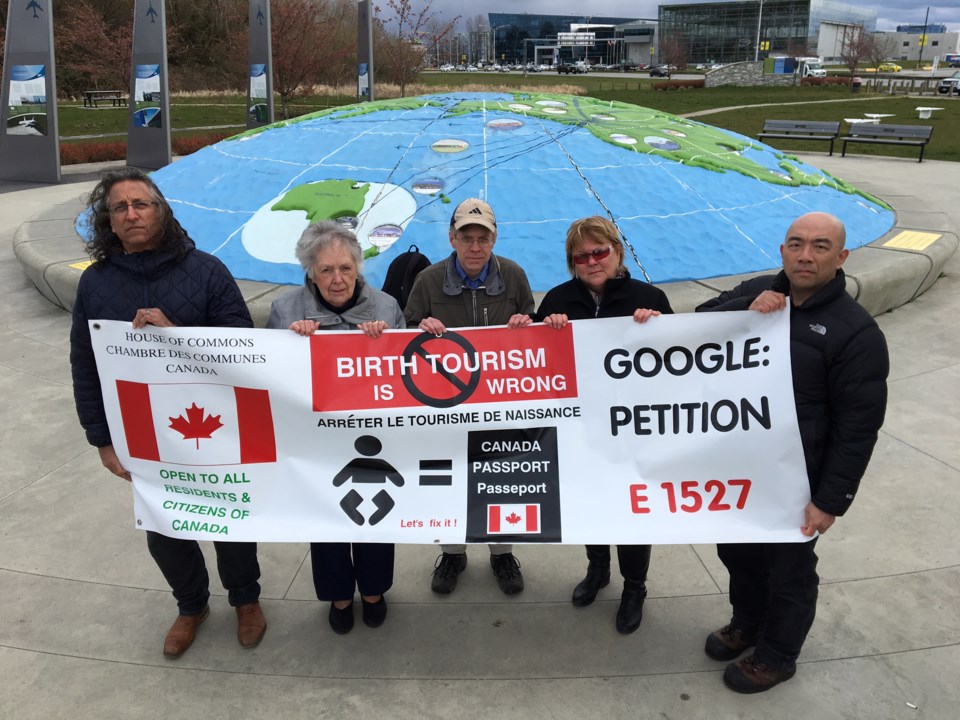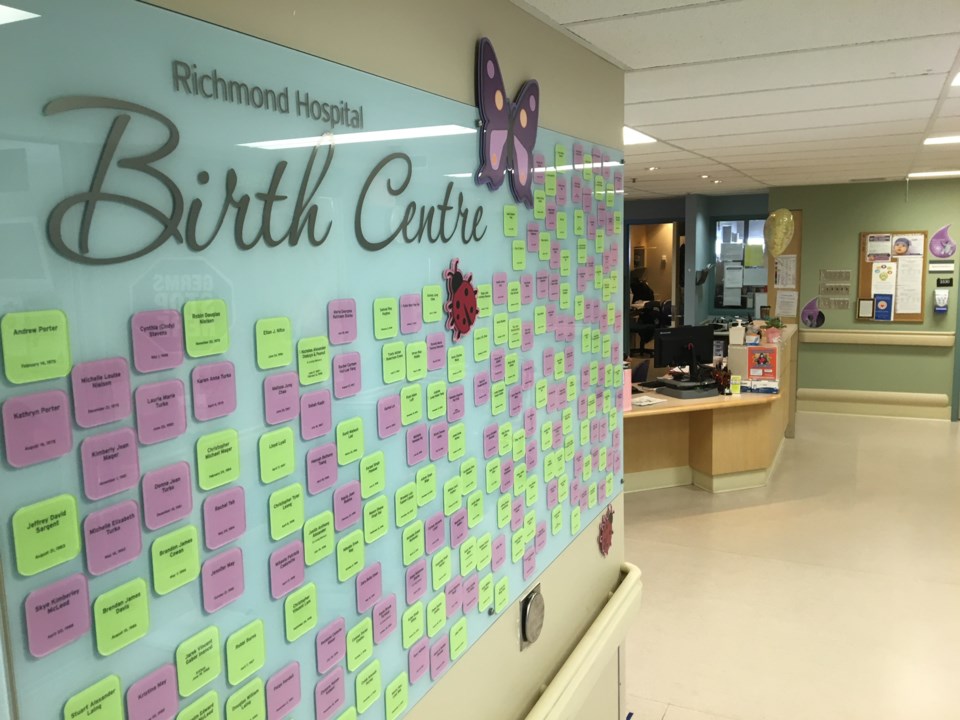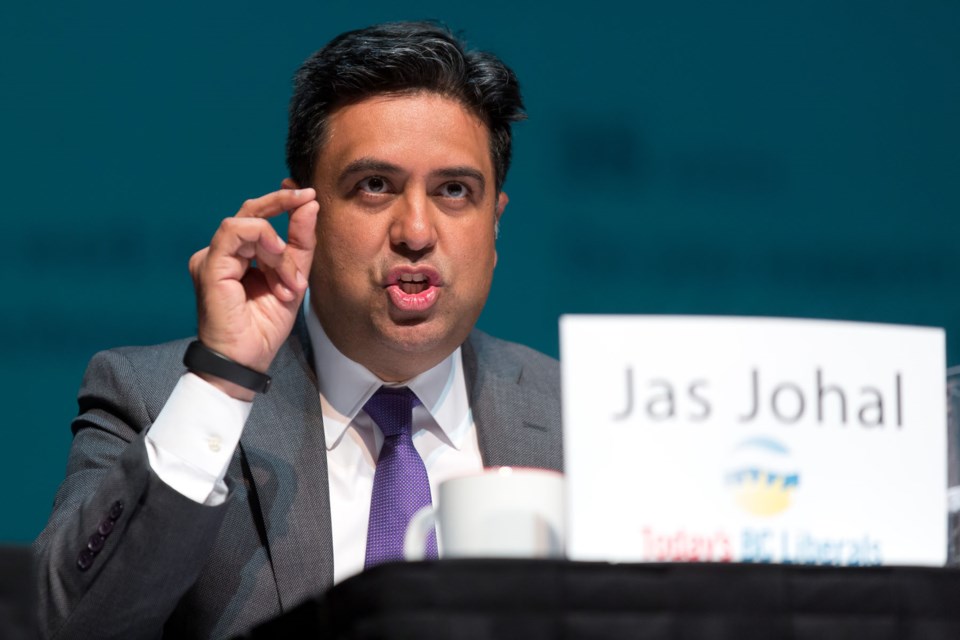Richmond Centre Conservative MP Alice Wong says a national public consultation tour by her official opposition party will iron out details surrounding a proposed end to birth tourism that involves scrapping Canada’s longstanding and unconditional citizenship rights by birthplace.
Causing much reaction nationwide last weekend, the proposal was passed by a slight majority at the Conservative Party of Canada policy convention in Halifax.
“It’s not a bill yet; not a law yet. I think this is an opportunity for the government to look at those solutions,” said Wong, who acknowledged criticism that making such changes without careful consideration may produce stateless children, particularly among newly-landed refugee claimants.
“We’ll be listening to Canadians to give us some suggestions. But the basic principle is, we strongly object to passport babies …because it becomes an industry that harms our local people.”
Meanwhile, Richmond-Queensborough MLA Jas Johal said he hopes solutions to the perceived problem of birth tourism — where Richmond Hospital is the “canary in the coal mine” with a 22 per cent non-resident mother birthrate — does not get bogged down in an “existential” debate on immigration.
Party leader Andrew Scheer said last week the vote was in reaction to Steveston-Richmond East Liberal MP Joe Peschisolido’s petition to Parliament this July that condemns birth tourism and calls to “expeditiously implement concrete measures to reduce and eliminate this practice.”
The Liberal petition follows Wong’s failed petition in 2016, which called for an end to jus soli citizenship rights to curtail birth tourism, a practice whereby foreigners come to Canada and pay to give birth for the explicit reasons of citizenship for their baby.
“Conservatives recognize there are many Canadians who have been born in Canada by parents who have come here to stay and have contributed greatly to our country. I will not end the core policy that facilitates this. Unlike Justin Trudeau, I will safeguard it against abuse,” said Scheer.
Both petitions were commenced by Richmond community activist Kerry Starchuk and others who call the practice an abuse of Canada’s social safety net and immigration system.
Starchuk said the debate “should get very interesting,” however she called a recent tweet by NDP leader Jagmeet Singh “plain out nasty.”
Following the Conservative vote, Singh tweeted he “unequivocally condemns the division [and] hate being peddled.”

Johal said he worries as Richmond’s maternity ward continues to receive more and more foreign nationals from China, federal politics will devolve into a “nativist extreme versus Canada is a tolerant country” type of argument.
“The issue is that citizenship can be purchased. That’s the issue at the end of the day,” said Johal, who has consulted with Starchuk’s group on the matter and said he’d be willing to raise the matter in Victoria to explore provincial government solutions.
“I think regulation can deal with this issue,” said Johal, suggesting ideas such as increasing the rates people are charged to give birth (at the moment it is only cost recovery), having municipalities crack down on birth tourism homes or barring pregnant women from coming to Canada on a tourism visa for the explicit purpose of giving birth (it is presently legal to declare such intentions).
Johal said regular immigrants are likely the most upset about birth tourism. “We need more immigrants coming to the country, but we can’t be so naïve. We are tolerant.
“But let’s not be so gullible.”
He said government "gets worried immigrant communities don’t want to deal with it," which is far from the truth, in his opinion.
Notably, all Western countries except Canada and the U.S. have placed some restrictions on jus soli citizenship. In the U.S. it is ingrained in the Constitution whereas Canada may change its laws via the Citizenship Act. Various non-partisan attempts to change the U.S. Constitution have been made over the years.
Johal noted Hong Kong bans birthright citizenship even for mainland Chinese.
"The Chinese banned the Chinese. That says something to you. We cant act like boy scouts here," said Johal.
Amidst blustery allegations of racism, including alt-right links to teh Conservative Party, Conservative immigration critic MP Michelle Rempel took to Twitter as well, stating: “I am so profoundly tired of our inability to discuss policy issues related to immigration in a pragmatic way. I’m tired of raising legitimate concerns, trying to examine them, only to be labeled one way or another for political gain. So let’s talk about birth tourism.”

Rempel acknowledged the Conservative policy motion “didn’t address the issue of statelessness, and was vague in wording,” which is why she also called on a Parliamentary committee to better understand the true nature of birth tourism and solutions (not unlike Peschisolido's petition).
Some on Twitter have chalked the issue up as a minor one, citing nationwide data on non-resident births.
But the News has reported on discrepancies of non-resident birth reporting nationwide.
Whereas Richmond Hospital reported 299 “self-pay” births from non-resident mothers in the 2015-16 fiscal year and 379 in the 2016-2017 fiscal year, Statistics Canada only reported 99 births in B.C. in 2016 where the “Place of residence of [the] mother [is] outside Canada.”
Yet, across Canada there were only 313 such births reported in 2016 by Statistics Canada.
The problem lies in non-resident mothers listing their short-term rental home (a maternity care home) in Canada as their place of residence.
“In the past, the Ministry of Health has tracked non-resident births by the address listed by parents on a baby’s birth registration, which could be local or international. Hospitals will typically go by whether or not patients are paying out-of-pocket for services to determine if someone is a resident of British Columbia,” stated B.C. Ministry of Health spokesperson Laura Heinze, via email in June.
“We are currently in the process of aligning these reporting methods in order to get a more accurate picture of non-resident births across British Columbia,” Heinze added.



